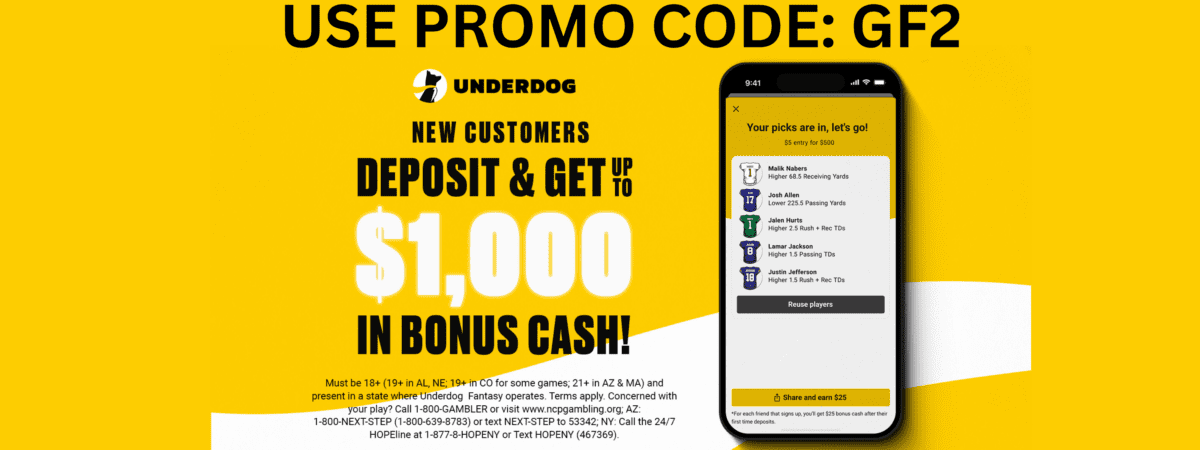Three Reasons Andre 3000 Is Not the GOAT Rapper
I first encountered André Benjamin like most rappers I heard in the mid-90s. I dug in a barrel at a record store, found a cassette with minimal artwork on the cover that contained 5-8 songs by various artists. The cassette was labeled “promotional copy” and cost about $4 or $5. All of the tape’s songs had a Christmas theme, I don’t recall the other groups on the tape, but one of the last songs was “Player’s Ball” by some group named OutKast. The two rappers were solid with the delivery of their verses, the track included sleigh bells and was pretty well produced, but based on the lyrics… I struggled with accepting it as a Christmas song.
A few months later in the winter of 1994 I finally saw a video for that Christmas song I heard a couple of months earlier, and I put eyes on Big Boi and André who were obviously from Atlanta. Things took off pretty quickly for the duo.
As the years passed I rocked with the group that initially stood out for me because they were a rap group signed to LaFace Records. No shame in that, they constantly had hits. I dug the remix to “Southernplayalisticadillacmuzik” and “Git Up, Git Out” added a lot of substance – a major prerequisite during that era. Bigger hits arrived with each ensuing album, and I started taking notice of the André kid’s flow, as well as his evolving look.
Admittedly, I was very late to the party with Dré being one of the illest in the game. Part of it was he was one half of a group, and the other part of it was my partiality to the lyricism/lyrical content, sample-heavy production, and delivery of the emcees from New York City. Big Daddy Kane. Rakim. KRS-ONE. LL. Hell, I dug well over a dozen cats that couldn’t hold a candle to André in due time!
Now, in 2017, that barrel from the record store is SoundCloud or one of the major hip hop blogs with daily updates for new music. Most hopeful rappers have HD quality videos readily available on YouTube, and have probably DM’d you on Twitter long before you thought to look for them. Moreover, André Benjamin is now known as André 3000, he’s also a film and television actor, and he’s increasingly mentioned as the greatest rapper alive.
I’m still late.
I don’t question 3 Stacks’ greatness, but I can’t help but cringe at this popular convention that he’s the greatest. That said, as I continue to inch closer to my mid-40s along with many of hip hop’s luminaries, I don’t really have a lone rap great. Or, maybe I just don’t have the energy to argue on the behalf of any emcee. I have a starting five comprised of the usual suspects, and 2-3 of the guys lead the way in scoring every night.
If somebody is passionate enough to argue a certain person, the likelihood is that you’re not changing their mind. In fact, here’s a free bit of wisdom in the event a GOAT rapper debate starts to rear its ugly head in your vicinity. That is, unless you have time and welcome these discussions. But, if you don’t care to waste your time here it goes. Get a person’s Top 5 rappers before you even decide to engage in a debate on hip hop’s GOAT. If there’s this easily identifiable common thread between 3-4 of the person’s Top 5, you probably should just listen and then carry on about your business.
Before we go any further, greatest rapper alive is not synonymous with greatest of all time (GOAT). However, I’m going to recklessly substitute GOAT for ‘greatest rapper alive’ for this discussion because GRA sucks. The acronym GRA hasn’t even been coined yet! Also, my reasoning for André not being the greatest rapper alive also makes him ineligible for GOAT consideration.
The Obvious Reason André Is Not GOAT
The reason André 3000 is not the greatest rapper of all time should be obvious. The overarching reason is because André doesn’t currently have a solo hip hop album in his discography. These next several paragraphs contain three sub-reasons why an album is necessary to be approved for GOAT status.
I love Dré’s work as much as the next man, probably less than the average fan that resides in Atlanta, but this album requirement is non-negotiable. An album, a full-length long-player (LP) is the true touchstone for any rapper’s greatness. A classic album, or two or three, has to be at the crux of an argument for any great rapper. Without one, I just can’t fathom how any rapper proves they’re worth his/her salt.
Love our content? Check out the GoingFor2 Live Podcast Network!
The following are listed in no certain order.
Album songs that speak to different individuals.
I’ve wasted over an hour looking for the proper industry term! Singles. B-sides. Album cuts. Album fillers or fillers. Tracks. Records. Choose your pick, but I think I like ‘album joints’ or just ‘joints’.
A solo LP from André 3000 is necessary so that listeners can possibly get lost in an album joint that does not qualify as a radio single, but is a standout joint to any random listener. Or, in a discussion amongst fans about the best songs on an album, for example, a great album joint would consistently be mentioned as an album’s best song closely behind the singles. A great album joint might even be considered as the strongest record on the album.
Let’s look at a few classics in the genre.
In mid-January of 1994, the lead-off single “It Ain’t Hard to Tell” set fans up for Nas’ highly-anticipated debut album Illmatic. The Large Professor-produced track driven by a Michael Jackson sample preceded videos for follow-up singles “The World Is Yours” and “One Love”. Those records arguably cemented the long-standing iconic status of Nas’ magnum opus, but some of us incessantly rewound the driving, bare-boned DJ Premier-produced “N.Y. State of Mind” nearly half a dozen times before moving on to the balance of the album.
Two years later on Jay-Z’s Reasonable Doubt, lead-off singles “Dead Presidents II” and “Ain’t No N____” reintroduced fans to a familiar face and name – one last seen on Jaz-O’s catchy “Hawaiian Sophie” single – but “Politics As Usual” and the album’s heartfelt finale “Regrets” convinced fans the Brooklyn emcee was multi-dimensional on the mic. Add in the Notorius B.I.G. duet “Brooklyn’s Finest”, “Coming of Age” with newcomer Memphis Bleek, or the Irv Gotti-produced “Can I Live”, and possibly two more joints – I’d just be senselessly adding to my word count if continued.
Let’s go further back. In 1990 Ice Cube’s AmeriKKKa’s Most Wanted was way too raw for the concept of singles, but the project did produce a cinematic video for “Who’s The Mack” featuring DJ Pooh, which was somewhat of an early precursor to Friday. Most Wanted instantly showed fans O’Shea Jackson was too big for a group, even the Rock n Roll Hall of Fame N.W.A. crew, but the Bomb Squad-produced “The N***a Ya Love To Hate” signaled that in addition to attitude Cube was extremely resourceful and visionary. He could deliver a complete album without Dr. Dre’s skilled production. Cube’s creativity and storytelling skills continued to flourish on “Once Upon a Time In the Projects” and “A Gangsta’s Fairytale.”
Unfortunately, Tupac Shakur experienced the historic success of his third album, Me Against the World, from behind prison bars at Clinton Correctional Facility in Dannemora, New York. The Outlaw rapper may have been on the sidelines, but a certain album joint had 2Pac’s fans coyly asking their lovers “Can U Get Away” through the summer of 1995.
Other honorable mention monster joints include Rakim’s dour yet lithe delivery on “Lyrics of Fury”, KRS-ONE’s apropos safe sex PSA “Jimmy”, Uncle L used “1-900 LL Cool J” to show his bravado was still intact, and Notorious B.I.G. illustrated how the “Everyday Struggle” could make the strongest feel Ready To Die. B.I.G. spearheaded the “Big Willie era” and New York club joints that moved couples back to the dance floor, but the fellas in the cipher could solely claim “Unbelievable”, the DJ Premier-produced b-side to “Juicy.”
What would an André 3000 dark horse single sound like or be about?
Singles and Features.
We can save some time here regarding an album’s “radio singles” or “singles” for short. André 3000 had no problem dropping smash singles as half of Atlanta’s multi-platinum selling group OutKast – arguably hip hop’s greatest duo. However, after hearing lead-off joints like Method Man’s “Bring The Pain”, T.I.’s “King”, Busta Rhymes’ “Put Your Hands Where My Eyes Could See”, or Snoop Dogg’s “Who Am I? (What’s My Name?)” my mind longs to know what Andre 3000 would have up cooked up to have listeners clamoring for his album.
Another intriguing aspect that remains unknown concerning an André 3000 album is, without an LP we don’t know what other artists the ATLien would have sought out to complete a particular song – or the album in general. What current artists does 3 Stacks rock with or hold in high regard? What new artist might André have introduced us to? Is there a strategic reason behind a particular choice that was chosen for a collaboration? Does 3000 load up an album with features, or does he limit features to one or two to make the collaboration more prestigious?
When it comes to features all we’ve seen is 3 Stacks accept requests to be involved with projects. Many of those finished products have been stellar. Dré’s guest appearances routinely turn great songs into classic dope songs and notable past collaborators include heavyweights UGK, T.I., Young Jeezy, Drake, Lil Wayne, Future, Ciara, Beyoncé, Jay-Z, Rick Ross and even John Legend. Now that we’ve heard all of these great records, my curiosity lies in how would André determine which records needed another voice, and whether he would choose another rapper or a singer. Would the singer be Bey or Solange? Would the singer be male – Anthony Hamilton or Raheem DeVaughn? Would the singer come from an unexpected genre, and be Katy Perry or Ed Sheeran? Would 3 Stacks be the first rapper to tab Alabama Shakes’ Brittany Howard for a chorus, or some guitar work? We would fully expect him to do something nonconventional.
Would any certain absences stir any debate?
On Big Punisher‘s debut LP Capital Punishment (1998, Loud/Terror Squad) The Roots’ front man Black Thought’s presence on “Super Lyrical” was somewhat unexpected, but his bars served as a stark contrast to what fans were just getting to know about Big Pun’s favorite themes, his unparalleled cadence, and lyrical prowess. As Pun began to work the album in subsequent interviews fans learned that Thought was included on the project because he was actually Pun’s favorite rapper – a realization many others arrived at years later.
In other standout selections, recall the amazement experienced on two of hip hop’s greatest debut releases when you heard Nas and Biggie’s lone collaborators AZ and Method Man, respectively. What did those choices for such important roles mean? Why did Biggie recruit Oakland, CA legend Too $hort for “The World is Filled…” on his final album’s Disc 2? Is it only urban legend that Jay-Z would’ve scrapped “(Always Be My) Sunshine” without Kenneth “Babyface” Edmonds agreeing to handle the song’s chorus? Speaking of Jay-Z, would André have ever opted to trade versus with another titan like an Eminem, and allow fans to deliberate on who bested who?
Another important aspect fans may never know is what producers André seeks out to create the soundscape for his albums. More importantly, how well does he adjust to the producers he chooses? Nas and Timbaland joined forces twice in 1999, but even with Ginuwine and the late Aaliyah added to each track, the final results never quite lived up to what I expected when I read the track listing at the record store.
The last few points on singles. Obviously, album sales and the types of features on an album speak to the success of an album (think of the gravitas the coveted Sade would add to a Drake project, were October’s Very Own able to make that happen). Let’s go beyond the typical metrics for a minute though. Remember when we got to exchange thoughts on some of the most honest creativity of some of the greats? Think back to the usage of metaphor when we were mesmerized by Nas’ “I Gave You Power”, Jay-Z’s “Girl’s Best Friend”, and then Tupac added “Me and My Girlfriend.” A few other emcees have indulged in different analogies and symbolism. Would André 3000 have obliged this unspoken challenge, and if so what would’ve been his subject of choice?
Oh yeah, remember when releasing two albums in the same calendar year was a thing? Or what about the double-album challenge? For me, an artist who doesn’t face the pressures created by these various kinds of artistic tests, just can’t get a spot on the winner’s podium – I’m sorry.
Album title and/or album themes.
If you’re a music fan in general, you’ve probably taken notice of the importance of album titles. Or, conversely, what about the impact of not formally naming an album? Titles often reflect an artist’s starting point with a album. Titles reflect an emcee’s creativity, and in a genre based on lyrics as much as hip hop is, an album title regardless of the number of words, is almost the equivalent to a verse or “16”. A title can have a the same impact as one bar or a dope punch line. In so many words, a title is the album’s hypothesis, and all of the songs represent the supporting evidence for fans to reach their conclusion.
Personally, I appreciated Busta Rhymes’ series of albums that featured titles heavily tied to the Y2K hysteria as the world moved towards the new millennium at the turn of the century. From 1995-1999 Busta’s themes, video imagery and skits often expressed his fascination with the world possibly shutting down when clocks struck midnight on January 1, 2000. The albums were When Disaster Strikes…, E.L.E. (Extinction Level Event): The Final World Front, Anarchy, and then Bus kind of reset mankind with 2001’s Genesis.
Perhaps no rapper has exceeded Kanye West’s prowess regarding album concepts and titles. Throughout Yeezy’s career, his album titles foreshadowed exactly what his audience was getting ready to learn about where he was in life.
Some other standout album titles and/or concepts include Raekwon’s Only Built 4 Cuban Linx… (OB4CL is coincidentally my favorite album acronym), Redman’s Muddy Waters, 50 Cent’s Get Rich or Die Tryin’, The Game’s The Documentary, Scarface’s The Diary, Lupe Fiasco’s Food & Liquor, Common’s Be, and DMX’s It’s Dark and Hell Is Hot. No matter how many times I say X’s title aloud, I still struggle with it’s meaning. The hell is “It”, or is “Dark” short for Dark-man?
What concepts or statements would 3 Stacks have chosen for his albums? Would he have taken the easier route, opting to go with his own “____ Vol. __” series? Would Dré have missed the mark with consecutive projects, and then needed to go with a “______ Part 2” to revive the buzz of an accomplished career? Would something unique or innovative about a particular album’s packaging, cover artwork, song sequencing, or format have overshadowed the title the rapper spent weeks or months settling on, to become an album’s “barbershop” name?
Would André have felt the need to address a societal issue, causing him to but heads with a label, and a compromise resulted in an Untitled album? Or, would Dré reach a point in his career where he was compelled to make a statement about himself or his reputation, and entitle an album something as bold as T.I.’s King? Would André – long considered one of hip hop’s most eccentric individuals – have assumed different personas over the course of his discography, and released albums under different monikers? These details are intriguing (or should be) to fans not necessarily because we need to critique a rapper’s growth and dissect his/her creativity, but because our favorites are so incredibly dope that we’re interested in how they curate the ever-evolving culture of hip hop. These albums reflect how these rappers are interpreting changes in the country that affect the hip hop ecosystem.
Would 3 Stacks have ever felt the need to fully bare his soul to his fans like Eminem’s “The Marshall Mathers LP“, or explore an alter ego in-depth with a “The André 3000 LP“, after finding himself in a different phase of life or artistry?
In my opinion, hip hop music has long been the social media apparatus for its listeners and these albums, or posts, kept us in the loop regarding what was going on with our most influential friends.
So, that’s it fam, albums matter. For me, my greatest rappers of all time derives from 1,000s of hours of listening to cats I’ve been rocking with for what are now reaching the 15, 20 and 25-year marks. How could I not know quite a bit about the deepest thoughts of some of these artists? My music library – whether the format be vinyl, cassette, CD, or digital file – aren’t just recordings, they’re long-standing relationships. When I think of the great André Benjamin, bruh has simply chosen to “run a different race” with his music. No crime in that.
I just believe that us fans mature and age, constantly experiencing different life events (i.e. love/marriage, children, family life, the loss of a parent, divorce, changes with friends) right along with many of our favorite artists. Furthermore, their music serves as the soundtracks that seal these moments and milestones into our memories. The artists’ interpretation of these occurrences fosters our relationships with them – it makes them human. Twitter and Instagram weren’t always around to let us know their reaction to the conclusion of the Super Bowl, or their emotions while meeting their hero.
Albums are important to understand the growth of the artist as a person, or to reveal to fans how the artist is attuned to the ever-changing world. Maybe there’s a great deal of incongruence between the rapper’s music and what we’ve learned about them. Does it matter that an artist that’s rapped about the streets for four consecutive albums now is a husband and a father, and he shows that he can still make great music when he’s clearly not who he once was?
Or, is it okay to accept a father or husband that’s still solely rapping about the streets, and in order to remain relevant he encourages his fans to remain engaged in various street activity when that’s the farthest thing from his existence? Do artists like T.I. or Common increase their GOAT mentions by risking burgeoning Hollywood careers, to speak on troublesome times for the folks who’ve long supported them with the release of projects like Us or Else: Letter to the System and Black America Again?
I could ramble on with a couple dozen more questions when it comes to determining hip hop’s GOAT, but without some proper André 3000 albums to really live with the past umpteen years, 3 Stacks just hasn’t given me enough of himself to be my answer.
[wysija_form id=”11″]
ATTN Dynasty Commissioners: Do you want to do something cool for your league? How about a 1-hour live show dedicated to YOUR league? Team-by-team breakdowns, rankings, and more. For details and to book a show, visit: GoingFor2.com/plp.






